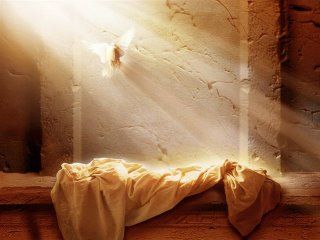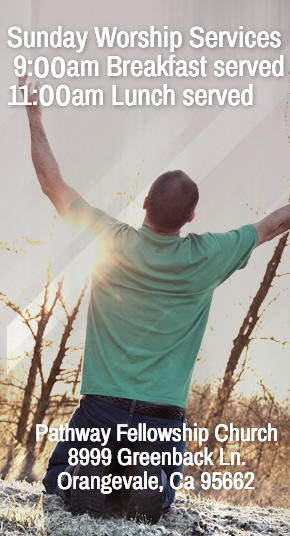It was just after Jesus had raised Lazarus from the grave. People were excited. Certainly this man was the Messiah who would restore Israel.
The Pharisee’s were angry and fearful that Jesus might cause a rebellion in which the Romans would flatten them. They decided that Jesus must die and on that day He became public enemy number one. He had to hide out for a few days. If He was going to die, He would be the one to orchestrate that whole narrative, not the Pharisees. Six days before the Passover, Jesus comes back to Bethany to have a last Sabbath dinner with His good friends, Martha, Mary and Lazarus. The “cat was out of the bag”. People flocked to Bethany to see Jesus & also Lazarus who was giving testimony about his coming back from the grave.
The next day, the 1st day of the week (Sunday), the day we refer to as the triumphal entry, Jesus, the “outlaw”, came out and openly entered Jerusalem with a crowd of Jubilant Israelites welcoming their King.
“Hosanna! BLESSED IS HE WHO COMES IN THE NAME OF THE LORD, even the King of Israel.” (John 12:13) They were convinced that Jesus was about to re-establish the Davidic Kingdom and remove the Roman domination.
(That great welcome would swing 180 degrees a few days later when Jesus didn’t deliver what they wanted) The Pharisees were powerless to stop Him, he was much too popular on that Sunday.
John records the events of the next few days, but strangely “omits” what took place on Wednesday. Sometime on Tuesday Jesus says
John 12:27,28
27 “Now My soul has become troubled;
and what shall I say, ‘Father, save Me from this hour’?
But for this purpose I came to this hour.
28 “Father, glorify Your name.” Then a voice came out of heaven:
“I have both glorified it, and will glorify it again.”
Soon it is Passover night, the moon is full. Jesus celebrates His last earthly Seder with His disciples. Afterwards, they cross the brook Kidron and head up to the Mount of Olives where Jesus would spend His final free hours in prayer and in agony. He had prayed here many times before, but we often don’t hear the content of His prayers. Luke 22:39-44 tells us that He was in so much agony that his sweat “became like drops of blood” Modern medicine surmises that under extreme conditions of duress, capillaries in the head burst forth drops of blood literally pouring out of the skin like perspiration.
It was while being in this state of agony, thinking forward to the excruciating pain (literally “out of the cross pain”) that was waiting for Him that He was praying so fervently.
What was so agonizing for Jesus? The pain that He was about to undergo? The disciples asleep and soon to be forsaking Him? Maybe He was focusing on the sin of the entire world (from the beginning of creation to the end of time). He was about to pay the ultimate price for all of that sin.
Our sin would be placed on Him, so that we might receive His Glory.
Whatever the reason for His agony, we see that Jesus who is fully God,
is at the same time fully man. Here, His humanity is on full display.
In Matthew 26:38-39 we see more of His nightmare into which He is freely walking. He didn’t have to do this. It was the Father’s will, but it was His choice.
“I am deeply grieved, to the point of death.
Then he prays to God, if it is possible, let this cup pass from Me;
yet not as I will, but your will be done”
Pause to reflect on Jesus suffering and how he handled it. His suffering was not pointless nor was it needless. Neither is ours. Each of us has our own “Via Dolorosa” (the way of suffering). And just as Jesus was the Son of God, we too are His children (though obviously not like Jesus, the 2nd person of the Divine Trinity). But none the less, we are God’s family. He does not cause our suffering. That is the business of the evil one. But when He does allow us to suffer you can be sure that it is not needless or pointless.
As author Kim Reisman has noted, “The truth is that the Jesus way isn’t about God taking pain away from God’s people; it’s about God providing us with strength, courage, and meaning, with abundant life, often in the midst of pain.”(1)
In American culture there is a different perspective on suffering. In our pursuit of happiness and pleasure, it should never happen.
When it comes we are quick to categorize it as an accident, just a bit of bad luck. It could have happened to anyone, but unfortunately for you, your number came up. It is simply the order of nature. There is no rhyme or reason to it. Richard Dawkins and his ilk tell us that life is empty, pointless, futile, a desert of meaninglessness and insignificance. Just like the rest of the world, (“red in tooth and claw”), our suffering is a part of the evolutionary process. Tough luck, too bad, so sad!
Thank God for Jesus Christ! He tells us and shows us that suffering can and does have purpose and meaning. Ultimately God is on the Throne and He will have the last word. In the end, Jesus is resurrected to sit at the right hand of God. But His suffering and death, far from meaningless, provides our way out of sin and death. He reunites us (the prodigals) with the Father. He walked the Via Dolorosa, and so must we take up our cross.
I wonder what the purpose and plan for our pain might be.
Surely God knows, and that is enough.
Coram Deo – Pastor Mike
(1) Kimberly Dunnam Reisman, Following At a Distance
(Nashville: Abingdon Press, 2005), 75


